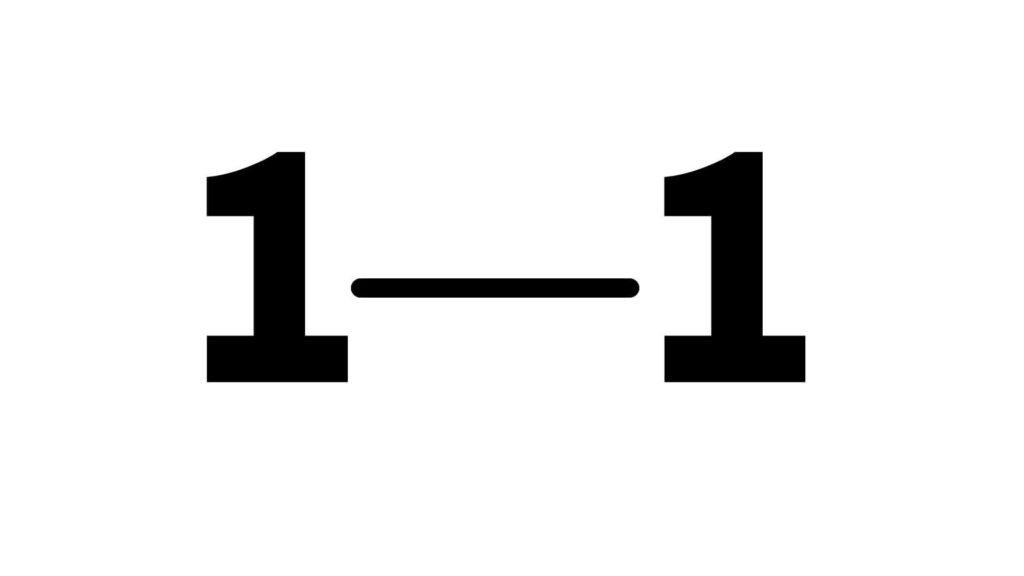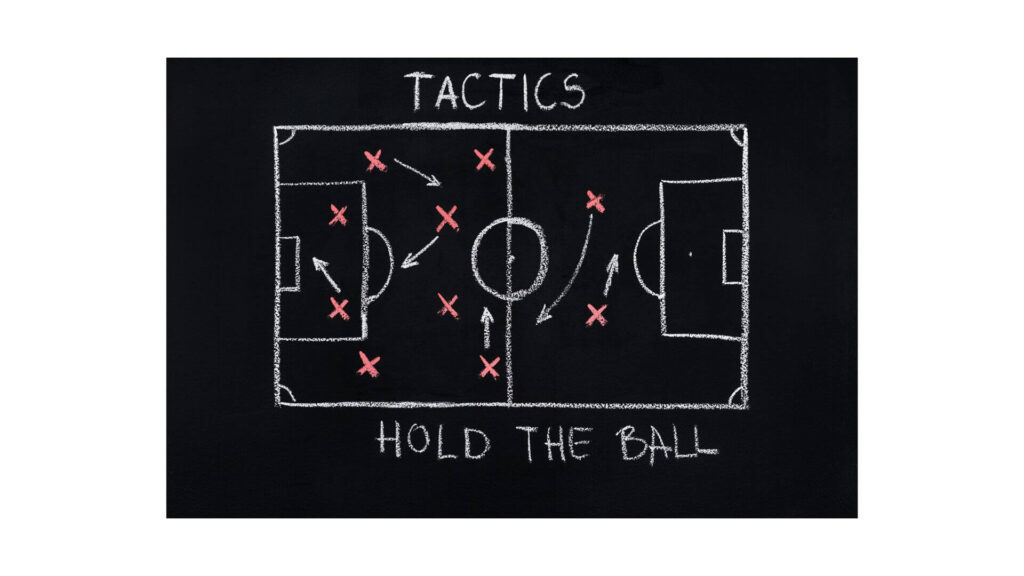In the world of soccer/football, the concept of “head to head”(H2H) holds immense significance. But what does it truly mean?
Understanding the dynamics of Head to Head games involves delving into tiebreaker rules, the importance of away goals, tactical considerations, and even the psychological factors that come into play.
In this article, we will explore the ins and outs of Head to Head in football/soccer, how it works, and unravel its meaning and its significance in the world’s most beloved sport.
Let’s get started.
Quick Navigation
- What is Head To Head In Soccer?
- How Does head-to-head work?
- Is Champions League Based On Head To Head Only?
- Why Do Teams Win Home Matches More Than Away Matches?
- Importance of Away Goals in Certain Competitions
- Tiebreaker Rules
- Tactical Considerations
- Psychological Factors
- Home Field Advantage
- Statistical Analysis in Head to Head Football Games
- Variations in Competition Formats
- Final Thoughts
What is Head To Head In Soccer?
In soccer, Head to head is the process of playing two direct confrontations against another team in a competition. Those two confrontations are also known as the first and second leg. Both teams play home and away and the final result will only be determined at the end of both confrontations.
How Does head-to-head work?
The head-to-head process is very simple. During a competition like the UCL for instance, during the group stages or knock-out stages, each team confronts the other twice, except in the final.
So, team A has to confront Team B twice. This consists of two games of 90 minutes each and both teams have a home and away match.
It doesn’t matter who wins the first game(first leg) as the final result depends on the second game(second leg).
In the event of a tie in the final result, this can be (0-0, 1-1, 2-2, etc), there will be an extra time of 30 minutes and if no one can take the lead, there will be a penalty session.
Is Champions League Based On Head To Head Only?
Yes, absolutely. As we just saw in the previous section of this article, the Champions League is composed of group stages and knock-out stages.
Each group stage consists of four teams and each team has six confrontations to go.
During those six confrontations, each team plays three matches at home and three matches away.
Only the two teams who finish on top of the group are allowed to move on to the next round, the knockout stage.
During the knockout stage, the process is the same… Until the UCL Final, which is a match of 90 minutes in a neutral stadium.
Why Do Teams Win Home Matches More Than Away Matches?
From its early stages to the global phenomenon of our century, soccer has changed profoundly.
But, if the lawns are greener and the rules sharper, if the technology invites itself and the pro players exist, a certainty remains. As on the first day, in search of victory, one is better at either.
Why do we win most often at home?
Most teams score more points at home than away, this is a fact.
There are three main reasons:
1. Fans’ support.
The passion of the fans who sing the fervour and scream their hero’s name, and push the team to a form of transcendence. It is the power of the 12th man that makes exertion less painful and fatigue less tangible. It is a valuable source of motivation, also capable of intimidating the opposing team with a deafening uproar and influencing events.
2. Playing at home.
While the adversary undertakes a long and arduous journey sometimes and must spend the night at a hotel away from his family.
Playing at home is to reap the benefits of the habit.
Finding your locker room, your seat, and your jersey is a comfort that makes it easier to prepare for a match.
3. The referee.
In the Premier League, for instance, the study of Ryan Boyko showed that the crowd has such an impact on the referee’s decisions that it can be measured at 0.1 goals for every 10,000 spectators, and it is more evident in a penalty situation.
That’s not all, Thomas Dohmen in The Economic Inquiry also states that the capacity of an audience influenced the decisions of the referee and the crowd’s proximity to the field is related to the quality of refereeing.
Also read=> What is a skill in soccer?
Importance of Away Goals in Certain Competitions
Away goals hold significant importance in soccer matches. When teams compete in a head-to-head encounter, the number of goals scored by the visiting team while playing away from their home ground can make a crucial difference.
In case the aggregate score of both legs is tied, the team with more away goals is usually given an advantage. This rule adds an extra layer of excitement and strategy to the game, as teams strive to score vital away goals to gain an upper hand.
Away goals can ultimately determine the outcome of a match or a competition, making them a key factor in the dynamics of head-to-head clashes in soccer.
But recently, UEFA has changed their rules regarding the away goal in the Champions League.
So, the winner of both confrontations is the one with more goals in both legs regardless of the away goal difference.
Tiebreaker Rules

Tiebreaker rules are important in soccer matches to determine a winner when the overall score is tied after both legs of a head-to-head contest.
In such situations, extra time and penalty shootouts are commonly used to break the deadlock.
Extra time provides teams with additional playing time to score decisive goals and settle the match.
If the tie persists after extra time, penalty shootouts come into play, where each team takes turns shooting penalties to decide the winner.
These tiebreaker rules add suspense and drama to the game, as players and fans anxiously watch each penalty kick, knowing that it could be the deciding factor.
Tiebreaker rules ensure that there is always a conclusive outcome, preventing matches from ending in a draw and providing thrilling moments for soccer enthusiasts.
Tactical Considerations

Tactical considerations play a crucial role in soccer matches, especially in head-to-head encounters.
Teams carefully plan their strategies and game plans based on factors such as the opponent’s strengths and weaknesses, the playing conditions, and the importance of the match.
Coaches and players analyze the opposition’s playing style to identify areas where they can exploit and create scoring opportunities.
Tactical decisions may involve adjusting formations, making substitutions, or employing specific marking or pressing tactics to disrupt the opponent’s gameplay.
These considerations also take into account the strengths and skills of the team’s players, aiming to maximize their effectiveness on the field.
Effective tactics can give a team an edge in Head 2 Head matches, as they allow for a structured and coordinated approach that capitalizes on opportunities and minimizes the opponent’s chances.
Psychological Factors
Psychological factors play a significant role in soccer matches, particularly in head-to-head encounters.
The pressure to perform and the stakes involved can have a profound impact on players, teams, and even the fans.
The psychological state of players influences their confidence, focus, and decision-making on the field.
The anticipation of a Head to Head soccer game can create a mix of excitement and nervousness, with players striving to channel their emotions positively.
Additionally, the support of passionate fans can provide an extra boost, fueling motivation and creating an electrifying atmosphere.
On the other hand, the psychological pressure of facing a strong opponent or being in a must-win situation can also have adverse effects, leading to anxiety or self-doubt.
Mental resilience and maintaining a strong mindset become crucial in overcoming challenges and performing at one’s best.
Understanding and managing psychological factors are vital in Head to Head games, as they can determine the outcome by influencing individual and collective performances on the field.
Home Field Advantage

Home-field advantage is a significant aspect of soccer/football matches.
When teams play in their own stadium, they often enjoy certain benefits that can impact the outcome of the game.
Firstly, the support of enthusiastic fans creates an electric atmosphere, cheering on the home team and making it harder for the opponents to concentrate.
The familiar surroundings of the stadium also provide a sense of comfort and familiarity for the home team, allowing them to settle into their routines and feel more at ease.
Additionally, the home team has the advantage of not having to travel, avoiding the fatigue and disruption that can come with long journeys.
Moreover, the proximity of the crowd to the field can sometimes influence the decisions of the referee, creating a perceived bias in favour of the home team.
All these factors combined make the home field a crucial element in football, with teams often performing better when playing in front of their home crowd.
Statistical Analysis in Head to Head Football Games
Statistical analysis plays a valuable role in soccer matches, providing insights into various aspects of the game.
Researchers and analysts examine data to uncover patterns, trends, and performance indicators that can help teams and coaches make informed decisions. They study statistics such as win percentages, goal differentials, and player performance metrics to gain a deeper understanding of team dynamics.
Historical data can reveal team strengths and weaknesses, highlighting areas that need improvement or tactical adjustments.
Statistical analysis also assists in evaluating the effectiveness of strategies and identifying successful patterns of play.
Furthermore, it allows for comparisons between different teams or players, aiding in the identification of standout performers or potential areas of improvement.
By leveraging statistical analysis, teams can make data-driven decisions that enhance their chances of success in Head to Head games and overall competitions.
Variations in Competition Formats
Variations in competition formats are an interesting aspect of soccer/football games.
Different leagues and tournaments around the world may have unique formats that add excitement and diversity to the game.
For instance, some competitions have group stages where teams compete against each other multiple times within their group. This allows for intense head-to-head battles to secure a spot in the next round.
Knockout stages are another format, where teams face off in single-elimination matches, creating a sense of urgency and drama as every match becomes a do-or-die situation.
Additionally, the final match often takes place in a neutral stadium, providing an equal ground for both teams to showcase their skills and determination.
These variations in competition formats keep the sport intriguing and provide different challenges for teams to overcome.
Understanding the specific format of a competition is crucial for teams to adapt their strategies and gameplay accordingly, adding an element of strategy and adaptability to Head to Head in football games.
Final Thoughts
Head to Head in football/soccer is more and more exciting as a team can lose the first leg and still hope to qualify in the second leg.
What’s even more exciting is that it allows both teams to play at home, on their pitch and in front of their fans.
But while our football is less and less localized, and every day globalized, is this advantage doomed to disappear?
Hope you learned the Head to Head meaning in football/soccer in this article.
Do you have any questions? maybe you would love to share some ideas, feel free to leave them in the comment section below.

